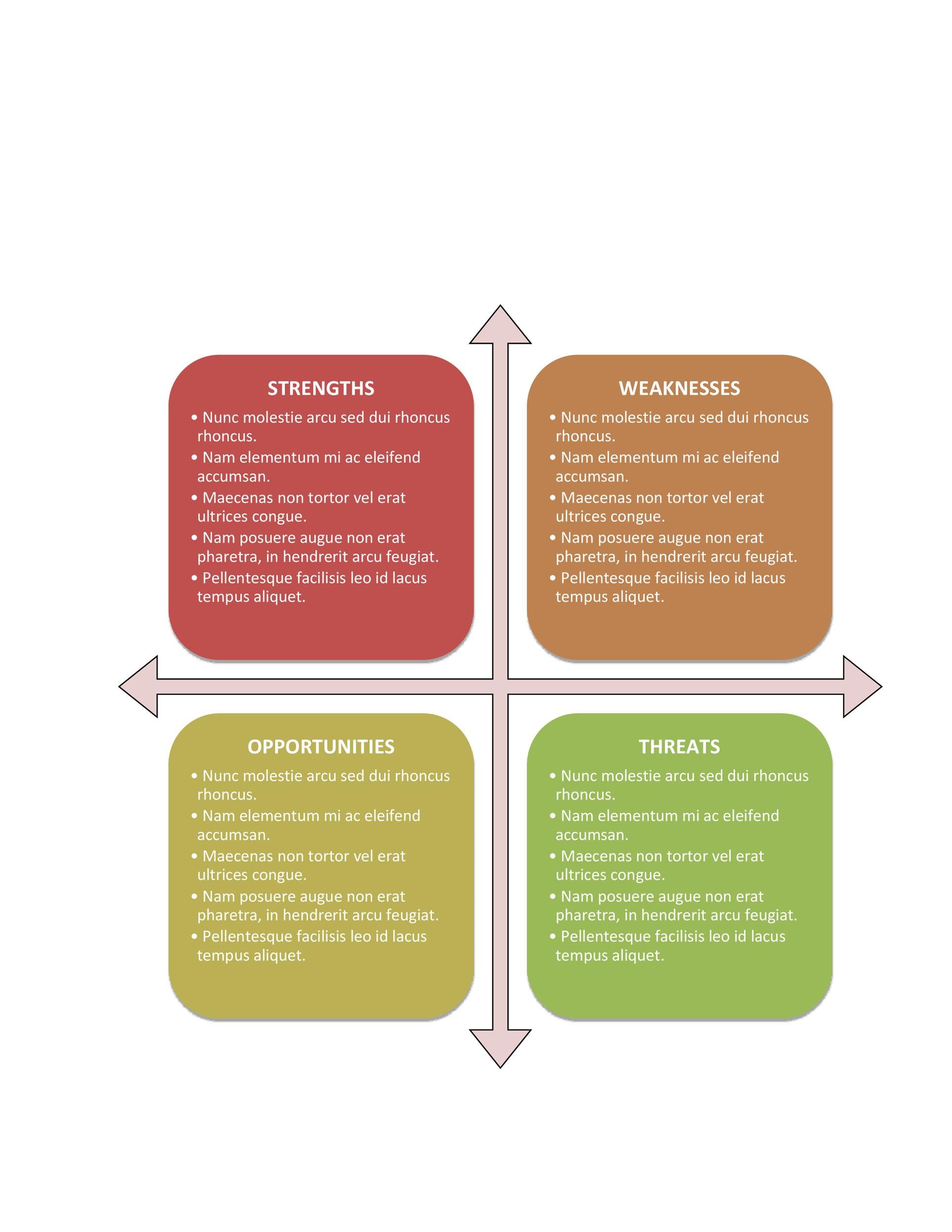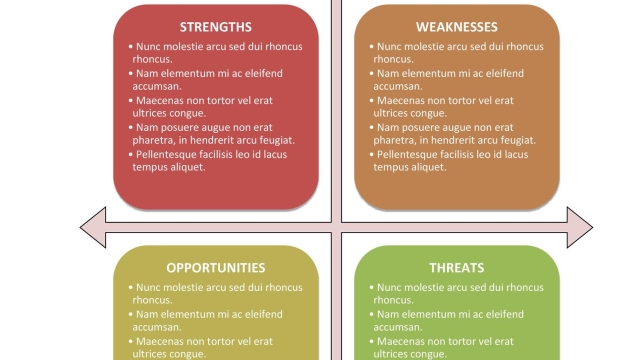In today’s rapidly changing and highly competitive business landscape, it is more crucial than ever for companies, especially smaller businesses, to have a clear understanding of their strengths, weaknesses, opportunities, and threats. This is where SWOT analysis comes into play, acting as a powerful tool to identify and evaluate the internal and external factors affecting a company’s performance. By delving deep into the core aspects that drive success or hinder progress, businesses can unveil new strategies, make informed decisions, and ultimately propel their growth.
One key aspect that often goes hand in hand with SWOT analysis is privacy risk assessment. With rising concerns about data security and the increasing importance of protecting sensitive information, businesses need to strategically assess potential risks associated with their operations. Understanding how privacy risks intersect with the strengths, weaknesses, opportunities, and threats identified through SWOT analysis enables companies to develop comprehensive risk mitigation strategies, ensuring they remain resilient and compliant in today’s data-driven world.
Recognizing the need for a simplified and holistic approach to business analysis, EasyBA has emerged as a game-changer for smaller businesses in the US looking to overcome stagnation and embrace growth. EasyBA combines the expertise of product management, financial analysis, and data analysis into a single service, providing tailored solutions to address the unique challenges faced by these businesses. Through synergistic collaboration, EasyBA empowers companies to harness the power of SWOT analysis, unlocking valuable insights and actionable strategies that pave the way for success.
In this article, we will delve deeper into the intricacies of SWOT analysis, exploring how this tactical framework can revolutionize the way businesses assess and adapt to their ever-changing environments. We will also highlight the significance of incorporating privacy risk assessment within the SWOT analysis process and shed light on how EasyBA is revolutionizing the way smaller businesses in the US approach business analysis. So, grab your notepads and get ready to unleash the power of SWOT for unparalleled business growth!
The Importance of SWOT Analysis
SWOT analysis plays a vital role in the success of any business. It provides a comprehensive framework for assessing internal strengths and weaknesses, as well as external opportunities and threats. By conducting a SWOT analysis, businesses gain valuable insights that enable them to make informed decisions and develop effective strategies.
One of the key benefits of SWOT analysis is its ability to identify internal strengths. This includes evaluating the resources, capabilities, and competitive advantages that a business possesses. By understanding their strengths, businesses can capitalize on them to gain a competitive edge in the market. Whether it’s a unique product offering, a strong brand reputation, or a talented team, recognizing and leveraging internal strengths is crucial for business growth.
Similarly, SWOT analysis helps uncover internal weaknesses. This involves identifying areas of improvement, such as operational inefficiencies, outdated technology, or limited market reach. By acknowledging these weaknesses, businesses can implement corrective measures and optimize their performance. Addressing internal weaknesses enhances the overall efficiency and effectiveness of operations, enabling businesses to better serve their customers and remain competitive.
Furthermore, SWOT analysis assists in identifying external opportunities and threats. Opportunities can arise from emerging markets, changing consumer trends, technological advancements, or even collaborations with strategic partners. By recognizing and capitalizing on opportunities, businesses can expand their customer base, enter new markets, and diversify their product offerings. On the other hand, threats are external factors that could potentially hinder business success. These can include competition, economic downturns, regulatory changes, or even reputational risks. By understanding and mitigating threats, businesses can safeguard their operations and stay resilient in the face of adversity.
In summary, SWOT analysis is a valuable tool that helps businesses assess their current position and make informed decisions. By recognizing internal strengths and weaknesses, as well as identifying external opportunities and threats, businesses can develop strategies that leverage their strengths and mitigate their weaknesses. Ultimately, SWOT analysis provides businesses with a tactical approach to business analysis that unlocks their full potential for growth and success.
Privacy Risk Assessment: Mitigating Vulnerabilities
As businesses increasingly rely on digital technologies to operate and store sensitive information, the need for robust privacy risk assessments becomes paramount. Conducting a thorough assessment allows organizations to identify and mitigate vulnerabilities that may compromise the privacy of their stakeholders. In this section, we explore the key steps in privacy risk assessment and offer insights on how businesses can effectively address these vulnerabilities.
1. Identify and Assess Data Privacy Risks
The first step in mitigating privacy vulnerabilities is to identify and assess potential risks associated with the data a business collects, processes, and stores. This includes considering external threats such as cyberattacks, improper data handling, and insider breaches. By conducting a comprehensive analysis, businesses can understand the specific risks they face and prioritize the actions needed to safeguard their data and comply with applicable regulations.
2. Implement Effective Data Protection Measures
Once the risks are identified, businesses must take proactive steps to implement appropriate data protection measures. This involves deploying strong encryption protocols, establishing access controls, and employing robust authentication mechanisms. Additionally, organizations should regularly monitor their systems and networks for security breaches, promptly address any identified vulnerabilities, and provide thorough employee training to ensure responsible data handling practices.
3. Regularly Review and Update Privacy Policies
As technology and business landscapes evolve, so do privacy risks. Therefore, it is crucial for businesses to regularly review and update their privacy policies to reflect these changes. This includes staying informed about emerging threats, monitoring regulatory updates, and making necessary adjustments to ensure compliance. By maintaining an up-to-date privacy policy, businesses can demonstrate their commitment to protecting their stakeholders’ sensitive information.
In conclusion, a privacy risk assessment is an essential part of any business strategy, particularly in today’s digital age. By proactively identifying and mitigating vulnerabilities, organizations can instill confidence in their stakeholders, enhance their reputation, and ensure the privacy of their data. Taking a comprehensive and tactical approach to privacy risk assessment is vital to the success and growth of businesses, allowing them to thrive while safeguarding the information they handle.

This concludes section 2 of our article. In the next section, we will delve into the importance of SWOT analysis in understanding your business’s strengths and weaknesses. Stay tuned!
EasyBA: Empowering Smaller Businesses to Grow
EasyBA is a comprehensive Business Analysis service designed to assist smaller businesses in the US that are searching for ways to expand and enhance their operations. With its focus on product management, financial analysis, and data analysis, EasyBA offers a strategic approach to unlock the potential for growth and success.
By leveraging the power of SWOT analysis, EasyBA provides valuable insights into a business’s strengths, weaknesses, opportunities, and threats. Through a meticulous assessment of these factors, EasyBA enables businesses to identify areas for improvement and implement effective strategies to address any challenges they may face.
One of the key benefits of EasyBA is its ability to conduct a privacy risk assessment. In today’s digital landscape, data privacy is of paramount importance. EasyBA ensures that smaller businesses understand and comply with relevant privacy regulations, mitigating the risk of potential data breaches and safeguarding their reputation and customer trust.
More than just a generic business analysis service, EasyBA is tailored specifically for smaller businesses. It takes into account the unique challenges faced by these organizations and provides targeted solutions that suit their needs and resources. With its affordable pricing and user-friendly interface, EasyBA empowers smaller businesses to make informed decisions, optimize their operations, and ultimately achieve their goals.
In conclusion, EasyBA harnesses the power of SWOT analysis to provide a tactical and comprehensive approach to business analysis. By offering services such as product management, financial analysis, and data analysis, EasyBA enables smaller businesses in the US to overcome obstacles and unlock their true potential for growth. With its focus on privacy risk assessment and suitability for smaller organizations, EasyBA truly empowers businesses to flourish and thrive.





